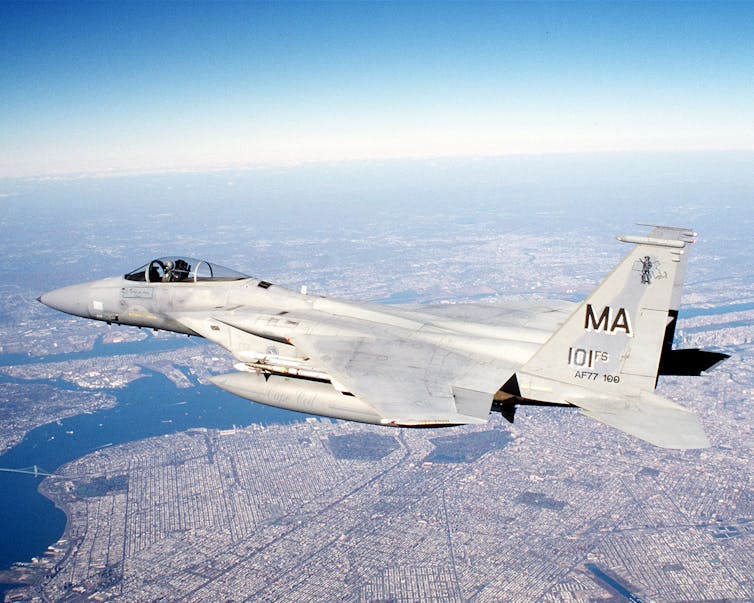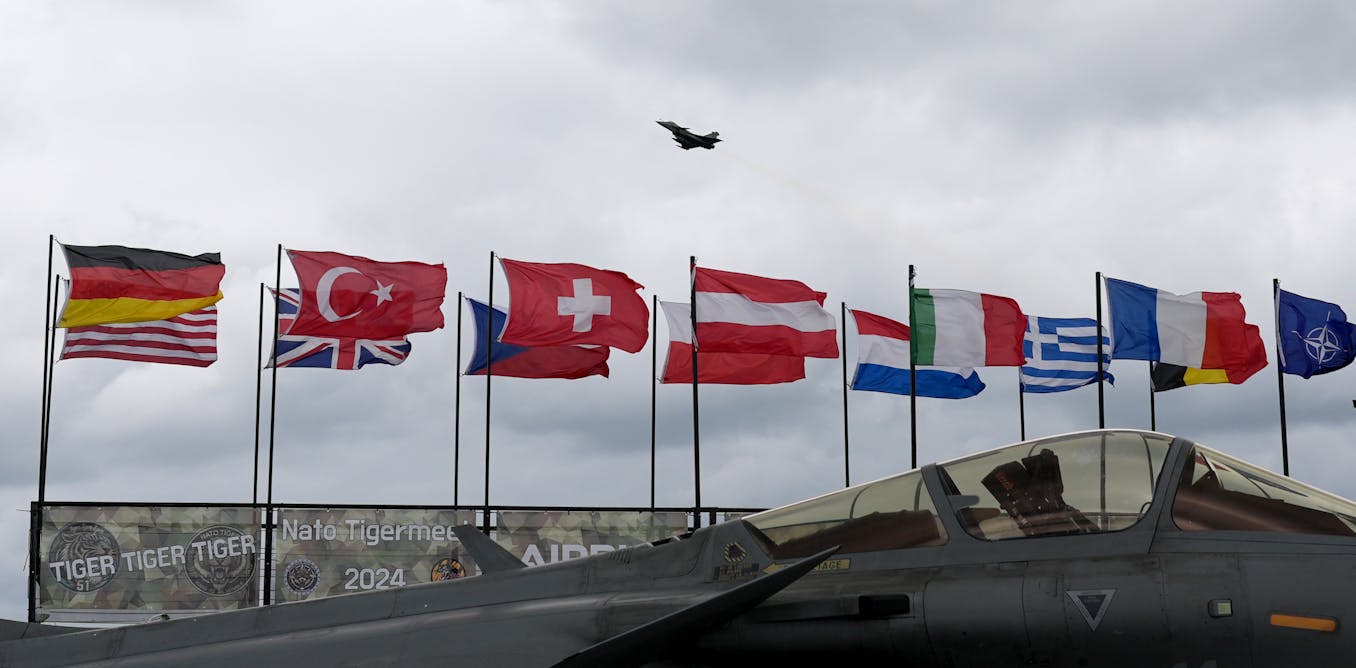The final result of the approaching U.S. presidential election is going to have major effects for the romance amongst the U.S. and its allies. Though President Joe Biden is a organization believer in the price of the transatlantic alliance, Republican contender Donald Trump has for a long time railed against U.S. participation in the North Atlantic Treaty Corporation, the armed service alliance usually referred to as NATO.
In February 2024, for case in point, Trump stated that if he have been reelected president, he would tell Russia to do “whatever the hell they want” against NATO members that are “delinquent” in not possessing invested enough in their possess armed forces capabilities. Overseas policy commentators viewed that as an invitation for Russia to attack these NATO international locations.
In September 2022, 6 months soon after Russia’s entire-scale invasion, Ukraine utilized to sign up for NATO. Now, Ukraine’s possible membership is 1 of the top rated inquiries that reps from NATO’s 32 member international locations in North America and Europe will contemplate when they fulfill in Washington in July 2024.
At the root of debates about plan toward alliances these types of as NATO is the assumption that NATO needs its users to action in and enable with defense if an additional member of the alliance is attacked.
As political researchers who study the function of worldwide corporations like NATO, we believe it is significant to have an understanding of that, in fact, alliance agreements are extra flexible than people believe.
In follow, it is attainable for the U.S. and other Western international locations to stay out of a conflict that consists of a NATO country devoid of owning to break their alliance commitments. The NATO treaty’s language includes loopholes that allow member nations around the world continue being out of other members’ wars in specific circumstances.
Steve Parsons-WPA Pool/Getty Pictures
What does Article 5 definitely suggest?
A single important section of the NATO treaty that countries indicator when they be a part of the alliance is identified as Post 5. This states that an “armed attack” from 1 NATO member in Europe or North The us “shall be viewed as an assault versus them all.”
In the scenario of these types of an attack, NATO nations concur to help the country that demands help, which include by “the use of armed force, to restore and preserve the security of the North Atlantic place.”
But the treaty does not consist of a distinct definition of a what an “armed attack” basically is.
This mattered in February 2020, when Turkey requested for a NATO conference and requested that NATO intervene with armed forces drive in reaction to Russian and Syrian forces’ attacks on its territory, which experienced killed 33 Turkish troopers, through the Syrian civil war. NATO allies selected not to defend Turkey with armed service power, arguing that the amount of violence versus Turkey was not more than enough to get in touch with it an “armed attack.”
Other exceptions to the rule
Even when NATO customers make your mind up that Write-up 5 should really implement to a certain condition, every country can nonetheless separately decide how to act. That is, when NATO does have administrative staff based in Brussels, there is no central NATO authority that tells every single region what it have to do.

Lt. Col. Invoice Ramsay/U.S. Air Pressure/Getty Visuals
Rather, each and every state tells NATO what it is – and is not – keen to do.
NATO customers have only formally invoked Write-up 5 at the time – pursuing the Sept. 11, 2001, assaults on the Planet Trade Centre and the Pentagon outside of Washington.
At that time, 13 NATO countries sent fighter aircraft to assistance the U.S. patrol its skies from mid-October 2001 to mid-Might 2002.
But most NATO allies selected not to deliver troops to Afghanistan to guidance the U.S. in its struggle versus the Taliban. This absence of motion on the portion of some NATO allies was not witnessed as breaking the treaty and didn’t prompt a key debate – and the nations around the world that selected not to join the fight have been not sanctioned by or ejected from the alliance.
The NATO treaty also gives some exceptions based on geography. When Argentina went to war with the United Kingdom (a NATO member) above the Falkland Islands in 1982, the U.S. and other NATO customers have been equipped to use the actuality that the alliance only applies to the North Atlantic location as a reason to continue to be out of the conflict.
Would general public feeling force the president’s hand?
Some political experts argue that voters will desire their leaders just take the nation to war to protect an ally. This implies that what seriously binds the users of an alliance alongside one another is not the legal text of an international treaty itself, given that no intercontinental court is empowered to implement the treaty, but instead the public’s expectations of what it implies to be an ally.
As aspect of our analysis into how the American public thinks about intercontinental lawful obligations, we decided to build an experiment to see if presidents could use alliance loophole language to justify trying to keep the U.S. out of a war involving an ally.
In 2022 and 2023, we conducted a pair of study-centered experiments that concerned inquiring almost 5,000 American adults to look at a hypothetical scenario in which a U.S. ally will come less than attack from a impressive neighbor.
Some of the respondents have been instructed that the textual content of the alliance treaty would let the U.S. government to avoid owning to deliver troops to defend the embattled ally, although some others were being not instructed that info. Although the survey did not mention a certain alliance, we described the terms of the alliance in a way that matches the language applied in treaties like NATO’s. We then questioned the respondents to notify us their views on sending U.S. troops to protect the ally underneath attack.
Our effects discovered a significant variation concerning the people who have been told about the versatility in the alliance treaty and people who were being not. When respondents from the two groups were usually inclined to arrive to the defense of an ally, their willingness to do so was significantly lessen when they were informed that the alliance treaty did not essentially need the U.S. to ship troops.
This implies that political leaders can, underneath particular circumstances, control to convince a massive phase of the public that it is Alright to abandon an ally in a time of want.
So, when it will come to debates about U.S. policy towards its alliance partners – and no matter whether it really should confess new members like Ukraine – it is important for both sides to appreciate that alliance commitments are not quite as binding, possibly lawfully or politically, as the typical wisdom indicates.




